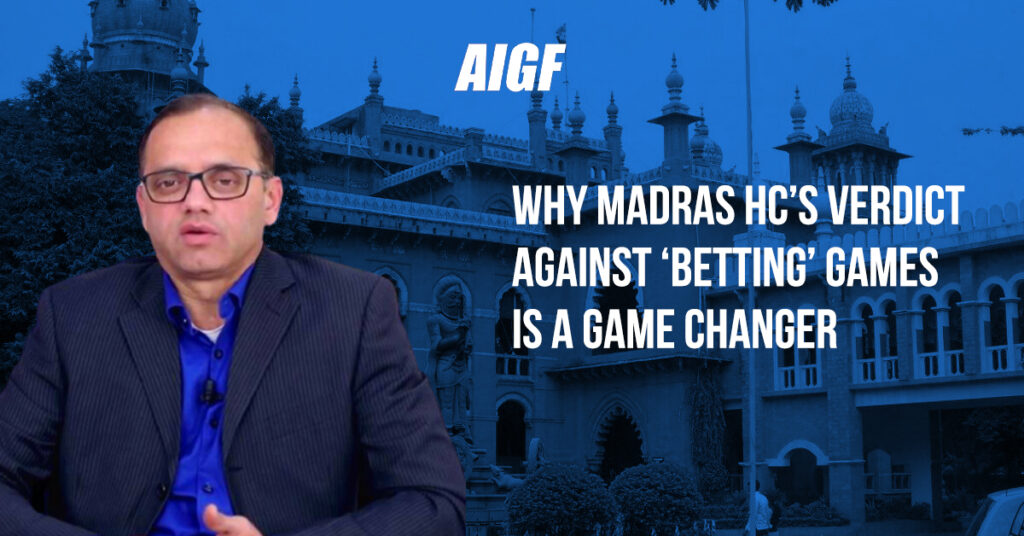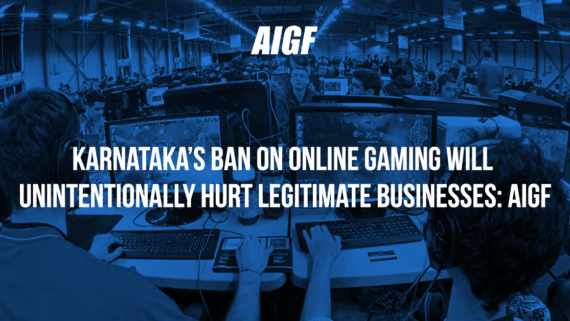When it comes to online gaming, there is a lot of confusion in the minds of government officials and users as they cannot differentiate between fantasy sports, real money sports, skill games, and esports, among other things. Having a clear delineation and definition will help remove this gray area and make it possible, said Mitesh Gangar, Co-Founder and Director of PlayerzPot.
Why Madras HC’s Verdict Against ‘Betting’ Games Is A Game Changer
Last week, the Madras Supreme Court struck down Part II of the Tamil Nadu Gaming and Police Laws (Amendment) Act 2021, which led the legislature to impose a blanket ban on rummy, poker and all other games played online for a wager, money, or another stake irrespective of it being a game of skill. The petition in Madras HC was filed by Junglee Games and other online gaming companies, claiming the ban was unlawful as rummy has been classified as a skill game by the Supreme Court. This decision was welcomed with anticipation by industry stakeholders as Tamil Nadu is viewed as an important market for transactional online skill gaming (TOSG) firms. “Tamil Nadu accounts for approximately 10% of the TOSG universe across revenues and player user base. The impact of this ruling is going to be extremely positive for the gaming industry and its stakeholders,” Roland Landers, CEO of All India Gaming Federation (AIGF) told BrandWagon Online.
To give perspective, Assam, Orissa, and Telangana were the first states to ban online games, and Andhra Pradesh and Tamil Nadu followed in their footsteps this year by a blanket ban on online “betting” games: While the debate regarding the morality of rummy and poker games has been taking place for a long time, the HC cleared the air with its judgment, “There seems to be no doubt that both rummy and poker are games of skill in that they require considerable memory, work with percentages, follow the cards on the table and constantly adapt to the changing possibilities of the unseen cards.” of invisible cards, said the court.
In addition, it also highlighted that report 276 of the Law Commission, on which the government relied to justify the ban stressed only regulation and not prohibition, opening the discussion on the need for a uniform regulatory framework in the online gaming industry. “The ruling very clearly brings out the need for the sector to be regulated and that banning is not a solution. We expect that there will eventually evolve a consensus between the State governments and the industry and a regulated skill games industry will emerge. Till this happens, a government-approved self-regulatory body for all Games of Skill, similar to what the NITI Aayog has advocated in its report, could be considered” Sameer Barde, CEO, The Online Rummy Federation (TORF) stated.
Until that happens, it could be seen as a federally recognized self-regulatory agency for all skill games, similar to what the NITI Aayog advocated in its report, ”said Sameer Barde, CEO of The Online Rummy Federation (TORF). The industry believes it is time to establish clear definitions for various online gaming platforms before moving towards a single regulatory framework to create a fairer framework for both government and users leaves no doubt.
When it comes to online gaming, there is a lot of confusion in the minds of government officials and users as they cannot differentiate between fantasy sports, real money sports, skill games, and esports, among other things.
Having a clear delineation and definition will help remove this gray area and make it possible, said Mitesh Gangar, Co-Founder and Director of PlayerzPot. According to Gangar, Madras HC’s decision will allow the company to add to the 7% it is at this point have lost adding more users of the ban as the south of the country is predominantly an audience that plays rummy.
Although this is not the first verdict in favor of the online gaming industry in India, it could be one of the most important since it set a precedent to open a discussion between the state government and stakeholders. The online gambling industry is nascent in India with many gray areas that amass a large number of lawsuits and government ridicules for promoting gaming. So far it is the courts that dispel doubts about the industry Like operating on a self-regulatory basis, some industry stakeholders believe that the TSOG segment should now receive a work regulatory framework from the government.“While I support self-regulation, I believe that once the government has put the regulatory framework in place, it will be followed both in spirit and in practice. The best thing for the sector at this point will be government formation. Establish a unified set of regulatory guidelines to avoid gray areas and create clarity,” said Varun Puri, Founder, and President of Dangal Games.
Credits: Financial Express











Comments
Comments are closed.